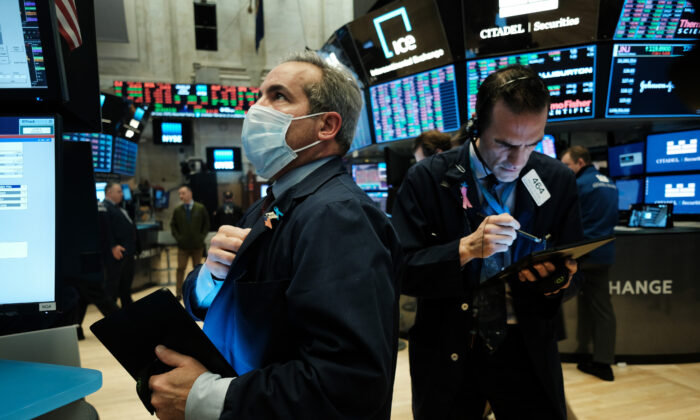Commentary
The national financial press is running articles suggesting that the large increase in individuals playing in the stock market is driving up the prices of some U.S. stocks.
Bloomberg Intelligence reports that the percentage of shares traded by individuals in the United States is up to 20 percent during the first half of 2020 from 15 percent in 2019 and 10 percent in 2010. These figures were coupled with other data to suggest that stocks favored by individual investors are either being driven up as a result of their purchasing activity or perhaps that individual investors in some stocks might be anticipating the price increases in those stocks.
There are certainly instances when individual investors might have some superior insight. My favorite example is that of a doctor investing in a company after that company’s drug representative visits the doctor’s office, and the doctor believes the new drug will be a blockbuster before the financial markets have fully appreciated how great it is.
Correlation Is Not Causality
What has been reported in the national financial press this week is actually correlation. And then the press went further than the data providers did in discussing causality.
For example, Nick Maggiulli has a great website, OfDollarsAndData.com, where he discusses these correlations. Unfortunately, some of his data were used incorrectly, to suggest in the national financial press that a causal relationship exists between the activities of individual investors and stock prices—even though he himself makes no such claim.
Correlation is the mathematical relationship between two phenomena; many phenomena can be correlated that aren’t actually related to each other.
If causality is shown, however, statisticians can demonstrate that one phenomenon leads to another phenomenon—i.e., the first one causes the second one. Higher ice cream sales, for example, are certainly driven by higher outdoor temperatures.
Furthermore, the direction of the causality must be properly understood. Higher ice cream sales don’t lead to higher temperatures.
Individuals’ Stock Market Gains: Perhaps a More Rational Interpretation
There is a correlation between rising prices and increased trading by individual investors in some stocks.
That’s a fact.
It seems to me, though, that the far more likely explanation is that individual investors are piling into stocks they see going up in value.
There are many investors who believe that momentum investing is a rational investment thesis—they believe a stock rising in price is more likely to keep rising, while a stock falling in price is more likely to keep falling.
However, it seems many individual investors buying stocks that are rising in price just may be gambling without understanding the concept of momentum investing.
Warning to Do-it-Yourselfers
The share prices of Lowe’s and Home Depot have performed very well recently—reflecting all those do-it-yourself house projects finally getting done (well, at least started) during the pandemic.
However, investing in stocks is not something analogous to watching a YouTube video and putting in a new lawn.
A person can watch a YouTube video to get some ideas about how to trade stocks.
But That’s Where the Analogy Ends
At the grocery store, when there aren’t meat shortages, if the price of chicken goes up, consumers don’t buy more chicken just because they see the price of chicken going up. They buy more pork or fish or beef or other sources of protein.
So, if a share price has been going up, an investor now has to buy it at the higher price. Unless the prospects for future profits have improved (either higher or sooner), then buying that stock should be a lower priority than buying one whose expected risk-adjusted return is higher.
Tim Shaler is a professional investor and economist based in Southern California. He is a regular columnist for The Epoch Times, where he exclusively provides some of his original economic analysis.
Views expressed in this article are the opinions of the author and do not necessarily reflect the views of The Epoch Times.
Focus News: A Warning to Stock Trading Do-It-Yourselfers
